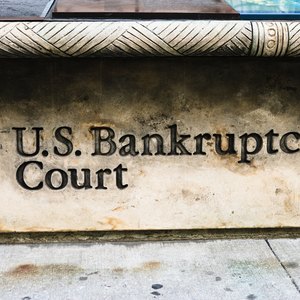
When a mortgage lender forecloses on a property, the owner can be held liable for legal and processing fees associated with the proceedings; he may be required to repay any portion of the mortgage loan not recouped by the lender as part of a foreclosure sale. Homeowners facing foreclosure often are concerned about the potential for losing additional assets, such as savings accounts, vehicles or other tangible property. While laws vary by state, there are several ways to shield some personal assets legally from seizure.
Learn the laws that apply to foreclosure proceedings in your state. This information is available from your secretary of state’s office and will tell you what assets may be seized legally by your mortgage company or bankruptcy judge.
Find out if the financial institution with which you do your personal banking is connected to your mortgage in any way. It may be a primary or secondary lender or a subsidiary of a mortgage company. If there is a connection, withdraw your money and open an account at an unrelated financial institution or put cash in a safe deposit box. This prevents the financial institution from automatically withdrawing funds from your account to pay past-due mortgage payments.
Open an off-shore account to deposit and shield cash assets. Make sure you are in compliance with rules set forth by the U.S. Patriot Act in establishing and moving money out of the country.
Transfer cash, vehicle titles and other seizable assets to a family member other than a spouse or cosigner on your mortgage. Examples of assets that may be considered seizable include artwork, jewelry, recreational vehicles and investment properties. Qualified retirement plans typically are not considered seizable assets.
Form a limited liability company, or LLC, and put assets into the company name. Be aware that a protective corporate entity must be an LLC and not a partnership or sole proprietorship, both of which link the business owner’s personal and business finances.
File for bankruptcy protection. During bankruptcy proceedings, state exemptions dictate which assets the filer keeps and which are subject to liquidation for the repayment of debt. Learning about the exemptions of your state will help you understand which assets are subject to seizure. A trustee, or overseer, of a Chapter 7 bankruptcy typically will sell everything beyond state and federal exemptions to satisfy creditors. Chapter 7 filing removes unsecured debt but doesn’t necessarily stop foreclosure proceedings unless the homeowner can come current with back payments. Chapter 13 bankruptcy requires the filer to enter into a court-approved creditor repayment and typically halts foreclosure proceedings, allowing the homeowner to retain his property.
Tips
Property transfers must be made before a foreclosure is finalized to be legal. If a bankruptcy court judge reviews your financial records and sees you have transferred assets in an attempt to hide cash that can be used to repay debt, he may deny bankruptcy protection, and you can face charges of credit fraud.
Warnings
Transferring assets to a family member can subject the recipient to gift taxes. Consult the IRS for limits on gifts (see References).
References
Tips
- Property transfers must be made before a foreclosure is finalized to be legal. If a bankruptcy court judge reviews your financial records and sees you have transferred assets in an attempt to hide cash that can be used to repay debt, he may deny bankruptcy protection, and you can face charges of credit fraud.
Warnings
- Transferring assets to a family member can subject the recipient to gift taxes. Consult the IRS for limits on gifts (see References).
Writer Bio
Lisa McQuerrey has been an award-winning writer and author for more than 25 years. She specializes in business, finance, workplace/career and education. Publications she’s written for include Southwest Exchange and InBusiness Las Vegas.

